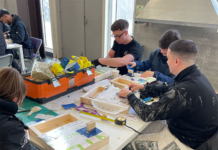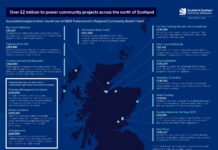
(Shutterstock)
A new digital mapping tool has been launched with the aim of improving city planning in deprived areas in cities in low and middle-income countries.
The IDEAMAPS Data Ecosystem platform enables users to directly improve the mapping of their own communities, with it aiming to foster positive exchanges of data between urban scientists, communities, and policy makers – helping to overcome barriers in city planning, neighbourhood improvement and ‘slum’ upgrading.
The platform is led by the University of Glasgow’s professor João Porto de Albuquerque, chair in urban analytics. It was launched at the World Urban Forum in Cairo on 5 November. He said, “The IDEAMAPS Data Ecosystem project is building a participatory data ecosystem to produce deprived urban area maps routinely, accurately and at scale that can enable transformative change.
“Grounded in methods of citizen science, our platform puts people at the centre of the digital technologies we develop. Whilst exploring the data we’ve generated, users can validate it by double clicking on grid cells. This means that they can change the data they see so that they more accurately reflect local realities.
“We use the validation of users to generate new and improved versions of our urban analytics models and thus improve the evidence base for decision making. Co-designed with our stakeholders, our platform seeks user participation at each step in its development – aiming towards a definition of technologies that offers improved and appropriate information to support city planning and participatory ‘slum’ upgrading.
“The IDEAMAPS Data Ecosystem platform (beta version) is publicly available for people to explore and validate our datasets about urban deprivation and assets.”








